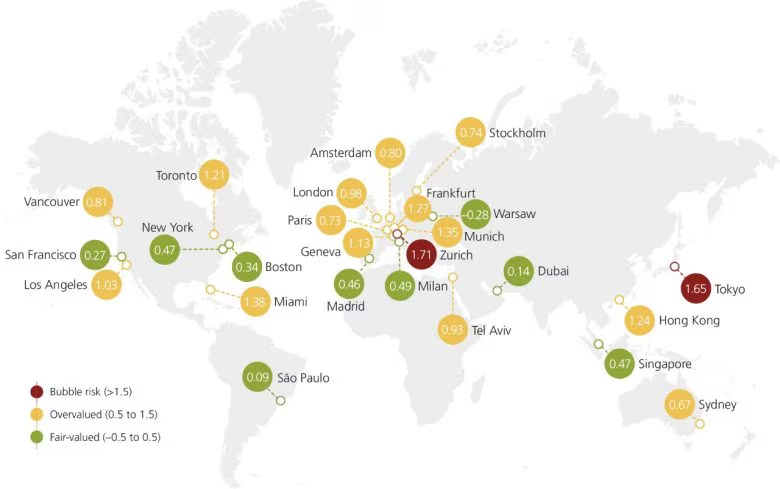Property Tax Comparison: Dubai and Global Perspectives

In the realm of real estate investment, property taxes play a crucial role in decision-making. Dubai, known for its luxury real estate market and investor-friendly policies, presents a unique case in property taxation, starkly contrasting with many global standards. This article explores how property taxes in Dubai compare to those in other parts of the world, offering insights for investors considering international real estate portfolios.
Dubai’s Property Tax Landscape
Dubai’s approach to property taxes is notably lenient, designed to attract foreign investment and promote economic growth. The city imposes no annual property taxes, which is a significant advantage for property owners. Instead, Dubai’s taxation system includes a one-time transaction fee. When purchasing a property, buyers pay a 4% transfer fee to the Dubai Land Department (DLD). Additionally, there are registration fees and minor administrative costs, but these are relatively low compared to annual property taxes in other regions.
 *Global Property Tax Perspectives*
*Global Property Tax Perspectives*
Globally, property taxes vary widely, often reflecting the economic strategies and fiscal policies of different countries. Here’s a look at how some major markets approach property taxation:
*United States:
In the United States, property taxes are a primary source of revenue for local governments. Rates can vary significantly between states and municipalities but typically range from 0.5% to 2% of the property’s assessed value annually. For example, New Jersey has one of the highest average property tax rates at about 2.49%, whereas Hawaii has one of the lowest at approximately 0.28%. These taxes fund local services such as schools, emergency services, and infrastructure maintenance.
*United Kingdom:
The UK employs a system of council tax, which is a local tax set by local authorities. The tax is based on the value of the property and the number of residents. For instance, a typical Band D property in England could see annual council taxes ranging from £1,200 to £1,800. Additionally, there is a Stamp Duty Land Tax (SDLT) that applies when purchasing a property, which can range from 2% to 12% of the purchase price, depending on the property’s value.
*Australia:
In Australia, property taxes are levied at both the state and local levels. Annual land taxes are imposed on property owners, with rates and thresholds varying by state. For example, in New South Wales, land tax applies to properties exceeding AUD 822,000 in value, with rates starting at 1.6% and increasing for higher property values. There is also a stamp duty on property purchases, which can be as high as 5.5% of the property’s value, depending on the state.
*Canada:
Canadian property taxes are determined by municipal governments and are used to fund local services. Rates typically range from 0.5% to 2.5% of the property’s assessed value. For example, in Toronto, the property tax rate is approximately 0.61%, while in Vancouver, it is about 0.25%. Additionally, provinces like British Columbia impose a property transfer tax on purchases, with rates up to 3% for properties valued over CAD 2 million.
*Advantages of Dubai’s Property Tax System*
Dubai’s minimalistic approach to property taxation offers several advantages:
1. *Cost Savings:*The absence of annual property taxes can result in significant cost savings for property owners, enhancing the overall return on investment.
2. *Investor Attraction:* Low transaction costs and the lack of recurring taxes make Dubai an attractive destination for foreign investors, encouraging more international investment.
3. *Economic Growth:* By reducing the tax burden on property ownership, Dubai fosters an environment conducive to economic growth and real estate development.
Conclusion
While Dubai’s property tax system stands out for its simplicity and investor-friendly nature, global property taxes are typically more complex and variable. Countries like the United States, United Kingdom, Australia, and Canada rely on property taxes as essential revenue sources, leading to higher annual costs for property owners. For investors, understanding these differences is crucial in making informed decisions and maximizing returns. Dubai’s approach, with its lack of annual property taxes and lower transaction costs, offers a compelling alternative for those looking to invest in a dynamic and growing market.


